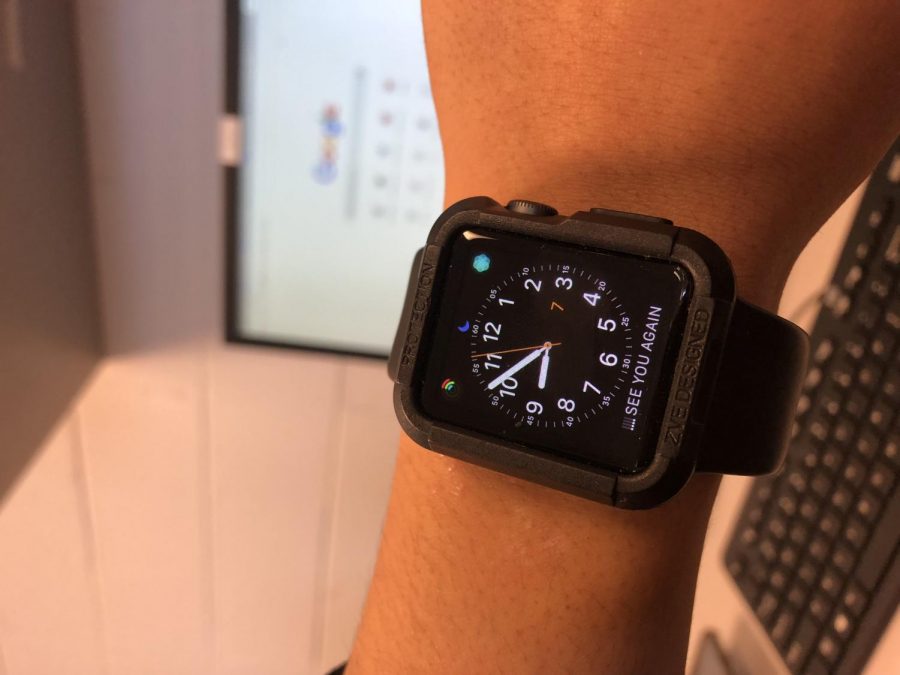Is Daylight Saving Time worth it?
Senior Sam Phan displays his Apple Watch, which automatically changed to the correct time during Daylight Saving Time.
Daylight Saving Time ended this weekend, and clocks around the U.S. were shifted an hour back, giving everyone an extra hour of sleep. Everyone loves getting an extra hour of sleep, but many people question whether Daylight Saving Time is worth the headaches it causes.
Contrary to popular belief, Daylight Saving Time was not introduced to benefit farmers. Many farmers actually opposed the initial introduction of Daylight Saving Time when it was first experimented with during World War I to increase productivity during wartime. The sun, not the clock, dictated farmers’ schedules, so daylight saving was very disruptive to them. Therefore, the argument that Daylight Saving Time exists for the agriculture industry isn’t really valid, as most farmers have their own schedule based around the sunrise and sunset.
Many advocates of Daylight Saving Time argue that it saves energy, but that really isn’t the case. A U.S. Department of Transportation study in the 1970s concluded that total electricity savings associated with daylight saving time amounted to about 1% in the spring and fall months. This was supposedly due to the lessened usage of indoor lighting due to the adjusted hours from Daylight Saving Time. In modern society, our use of technology is so extensive that any saved energy from usage of lighting would be negligible. According to a study by University of California Santa Barbara economists, they calculated that Indiana’s move to statewide daylight saving time in 2006 led to a 1% rise in residential electricity use through additional demand for air conditioning on summer evenings and heating in early spring and late fall mornings. This shows the uselessness of Daylight Saving Time in terms of saving energy, as in this case it actually increased energy usage.
Daylight Saving Time is also negative for our health. Changing the time, even by an hour, disrupts our circadian rhythm, also known as our sleep/wake cycle.
The resulting tiredness can be just an inconvenience for some, but it can be more serious for others. A study by two professors from Michigan State University concluded that Daylight Saving Time causes a 67.6% decrease in productivity at workplaces and a 5.7% increase in workplace injuries. If this is the result in a workplace, imagine the effect in the U.S. population as a whole.
The loss of sleep thanks to Daylight Saving Time can contribute to other health issues like heart attacks and traffic accidents. Daylight Saving Time also contributes to seasonal affective disorder, which is a mood disorder characterized by depression that occurs at the same time every year. This is thanks to the early evening darkness, which can negatively affect the mood of some people.
Daylight Saving Time has caused non-stop debate on if the function should even exist. It’s quite evident that it has many drawbacks, and not many positives. Daylight Saving Time would not be missed.

Senior Luke Elkins is in his 3rd year in the A-Blast. He has previously been a staff writer and sports editor. He plays varsity soccer and plays...










